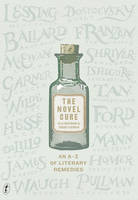Do you ever wonder why a particular book seems to come along at just the right time? I remember reading Armistead Maupin's series Tales of the City at a time in my 20s when I was missing a close group of friends who had all moved away. The friends in his books became my friends and helped fill a gap. Perhaps I was an early user of bibliotherapy?
Creative bibliotherapy utilizes imaginative literature—novels, short stories, poetry, plays, and biographies—to improve psychological well-being. Through the incorporation of carefully selected literary works, therapists can often guide people in treatment on a journey of self-discovery. This method is most beneficial when people are able to identify with a character, experience an emotional catharsis as a result of this identification, and then gain insight about their own life experiences.
An organisation called The School of Life who are "devoted to developing emotional intelligence through the help of culture", have produced a book called The Novel Cure: An A-Z of Literary Remedies. In it you can find a book cure for every conceivable ailment from dealing with boredom - try Room by Emma Doneghue and you will never complain about boredom again - or perhaps you have suffered abandonment and Kent Haruf's Plainsong will show you how to reach out? There are suggestions for being in a bit of a jam - The Life of Pi by Yann Martel will show you that really you have nothing to be worried about. There are also great book lists - the ten best novels to drown out snoring and the ten best novels for duvet days are my favourites.
If the thought of using books for therapy doesn't interest you, then perhaps the quirky and interesting book reviews will open up new authors that might have passed you by.




Add a comment to: Bibliotherapy